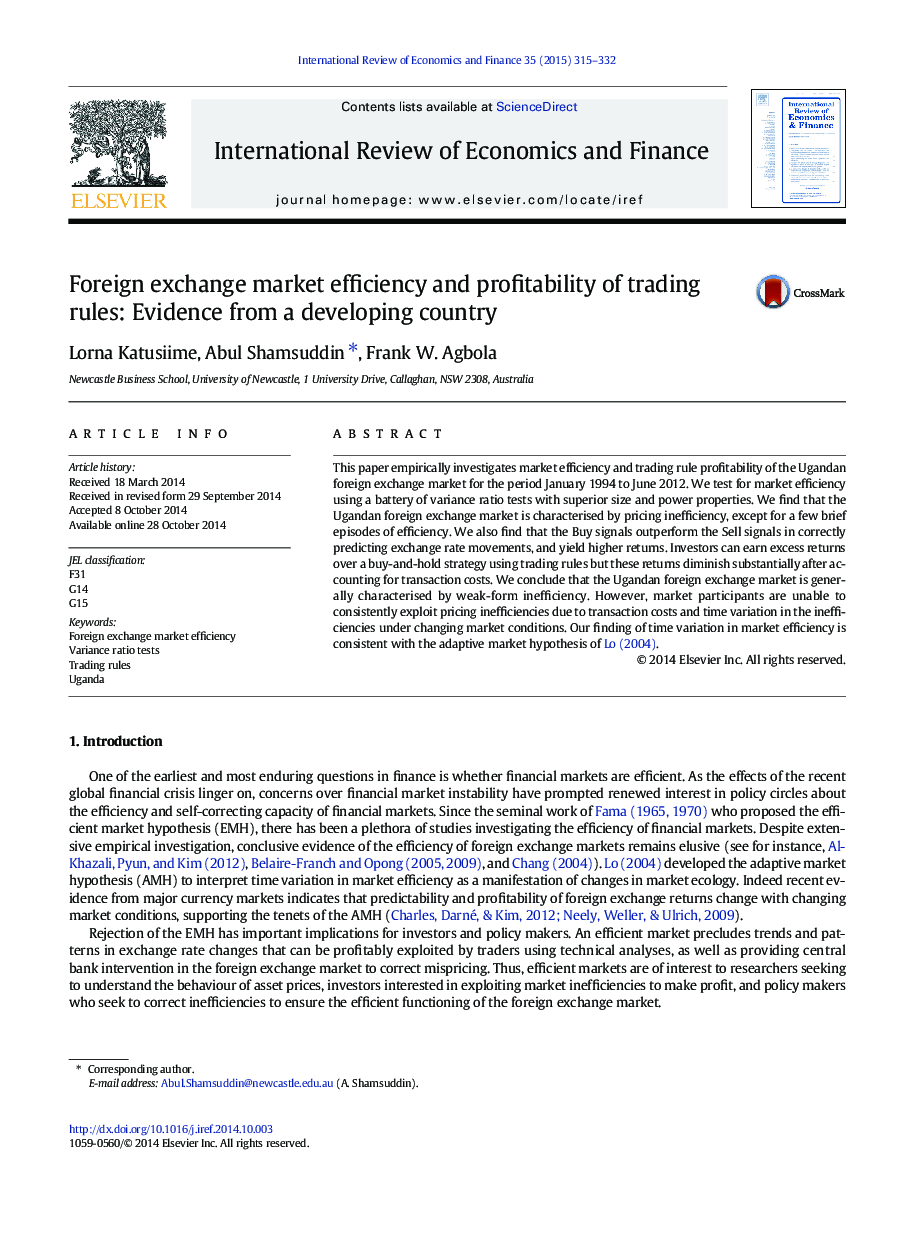| Article ID | Journal | Published Year | Pages | File Type |
|---|---|---|---|---|
| 5083640 | International Review of Economics & Finance | 2015 | 18 Pages |
Abstract
This paper empirically investigates market efficiency and trading rule profitability of the Ugandan foreign exchange market for the period January 1994 to June 2012. We test for market efficiency using a battery of variance ratio tests with superior size and power properties. We find that the Ugandan foreign exchange market is characterised by pricing inefficiency, except for a few brief episodes of efficiency. We also find that the Buy signals outperform the Sell signals in correctly predicting exchange rate movements, and yield higher returns. Investors can earn excess returns over a buy-and-hold strategy using trading rules but these returns diminish substantially after accounting for transaction costs. We conclude that the Ugandan foreign exchange market is generally characterised by weak-form inefficiency. However, market participants are unable to consistently exploit pricing inefficiencies due to transaction costs and time variation in the inefficiencies under changing market conditions. Our finding of time variation in market efficiency is consistent with the adaptive market hypothesis of Lo (2004).
Related Topics
Social Sciences and Humanities
Economics, Econometrics and Finance
Economics and Econometrics
Authors
Lorna Katusiime, Abul Shamsuddin, Frank W. Agbola,
